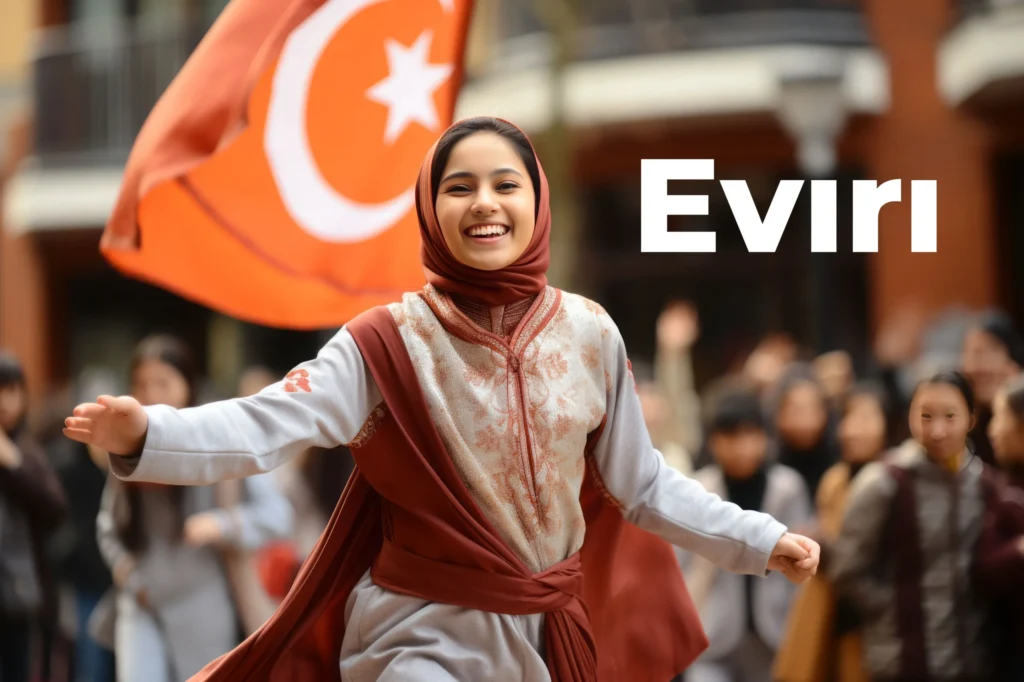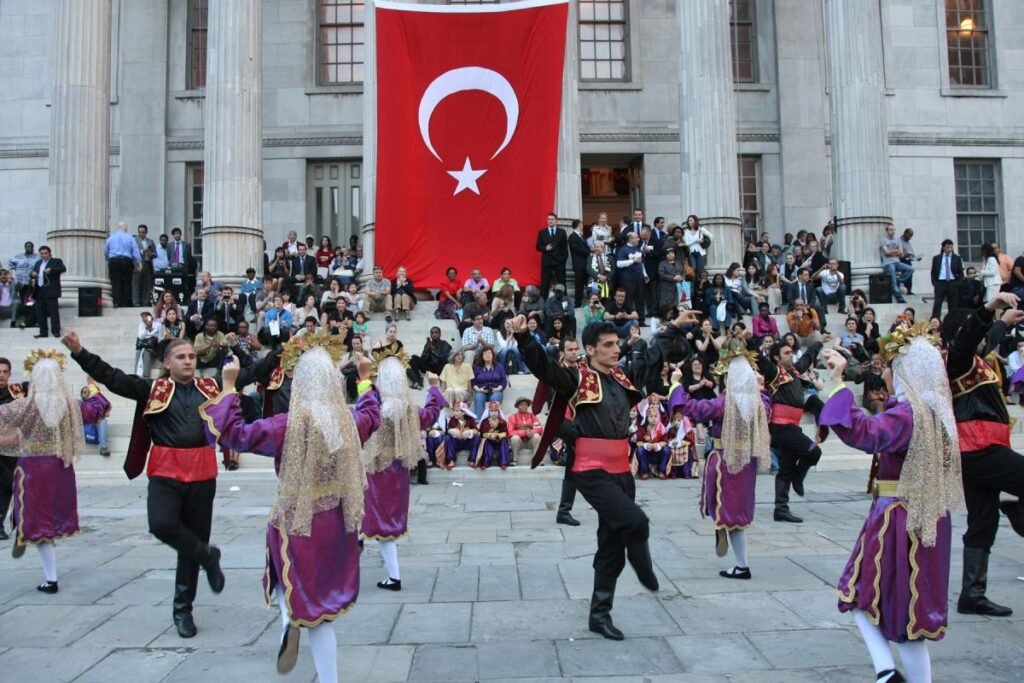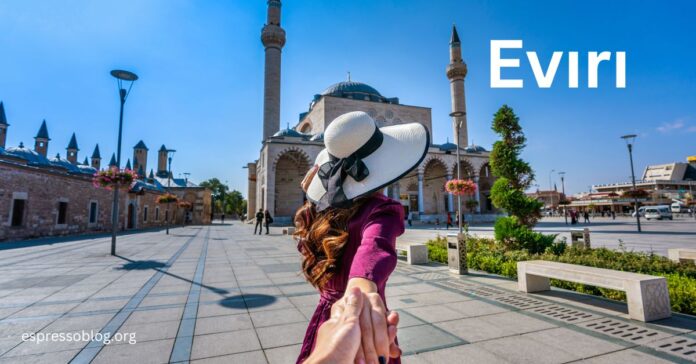Evırı is a special word in Turkish that means unity and togetherness. It’s like a colorful thread that weaves through the fabric of Turkish culture, connecting people through traditions, food, and shared experiences. Let’s dive into what makes Evırı so unique and important in Turkey.
What is Evırı and Why It Matters?
Evırı is a special word in Turkey that means togetherness and harmony. It’s like a big warm hug that brings everyone closer. In Turkish culture, Evırı is more than just a word—it’s a feeling of belonging and unity among people. It helps create strong bonds between families and communities, making everyone feel like they are part of something bigger.
Understanding Evırı is important because it shows how people can come together despite their differences. It teaches us to respect each other’s traditions and values, celebrating what makes each person unique while also connecting us through shared experiences. Evırı reminds us that we are stronger when we stand together, supporting and caring for one another through good times and bad.
Exploring Turkish Culture Through Evırı
Turkish culture is like a colorful tapestry woven with threads of Evırı. From delicious food to beautiful music and art, everything reflects the spirit of togetherness. Families gather for big meals where everyone shares stories and laughter, creating cherished memories that strengthen their bonds.
Evırı can be seen in Turkish tea ceremonies, where people come together to sip tea and talk about their day. It’s not just about the tea—it’s about the conversations and connections that happen over a simple cup. Turkish architecture and art also showcase Evırı, with intricate designs and patterns that tell stories of unity and heritage.
Family Bonds: How Evırı Strengthens Relationships
In Turkey, family is at the heart of Evırı. Families are not just relatives—they are a support system that grows stronger with each passing day. From grandparents to grandchildren, everyone plays a role in preserving traditions and passing down values that define Turkish culture.
Evırı strengthens family bonds through shared experiences like cooking together or celebrating holidays. These moments create a sense of belonging and unity, where everyone feels valued and loved. Family gatherings often involve laughter, music, and delicious food, reinforcing the importance of togetherness in Turkish society.
Tasting Turkey evırı: Culinary Traditions Reflecting Evırı
Turkish cuisine is a delightful blend of flavors that reflect the country’s rich history and diverse culture. From savory kebabs to sweet Turkish delight, each dish tells a story of tradition and togetherness. Meals are not just about eating—they are a celebration of Evırı, bringing people together to share in the joy of good food and company.
Food plays a significant role in Turkish culture, symbolizing hospitality and generosity. It’s common for friends and neighbors to come together for meals, where they enjoy hearty conversations and create lasting memories. Cooking techniques and recipes are passed down through generations, preserving the essence of Evırı in every bite.
Traditions and Unity in Turkish Festivals
Turkish festivals are vibrant celebrations that showcase unity and togetherness. Whether it’s religious holidays like Ramadan or cultural events like the annual Turkish National Day, these festivals bring people from all walks of life together. Families gather to enjoy traditional music, dance, and food, creating a sense of community and shared heritage. The colorful parades and lively performances at festivals highlight the diversity of Turkish culture while emphasizing the unity that binds everyone together. These celebrations not only preserve traditions but also strengthen the bonds between generations, ensuring that cultural values are passed down and cherished.
The Role of Arts and Crafts evırı in Turkish Unity
Art and crafts play a significant role in promoting unity in Turkish society. From intricate pottery to elaborate carpet weaving, Turkish artisans create pieces that reflect their cultural identity and craftsmanship. These art forms are not just objects; they are symbols of unity and pride. Artisans often work together in communities, passing down skills and techniques from one generation to the next. This collaborative effort fosters a sense of belonging and shared purpose among artisans, reinforcing the importance of preserving cultural heritage. Through art and crafts, Turks express their creativity and strengthen bonds with their community, ensuring that their cultural legacy continues to thrive.
Sports and Recreation evırı: Building Unity through Play
Sports and recreational activities are important in Turkish culture as they bring people together in a spirit of camaraderie and friendly competition. Whether it’s a game of traditional Turkish oil wrestling or a modern football match, sports unify communities by providing opportunities for people to connect and bond over shared interests. Team sports, in particular, teach valuable lessons in teamwork, sportsmanship, and respect for opponents, fostering a sense of unity among players and spectators alike. Sporting events also serve as social gatherings where friendships are formed, and community spirit is strengthened. Through sports, Turks celebrate their passion for athleticism and their commitment to unity through healthy competition.

Education and Unity: Empowering Future Generations
Education plays a crucial role in promoting unity and fostering a sense of national identity among Turkish youth. Schools across Turkey emphasize the importance of cultural heritage, history, and civic responsibility, instilling values that promote unity and respect for diversity. Students learn about the contributions of different cultures to Turkish society, fostering a sense of appreciation and understanding for others. Educational programs and initiatives encourage students to participate in community service projects and cultural exchanges, promoting unity through shared experiences and mutual respect. By investing in education, Turkey prepares future generations to contribute positively to society and uphold the principles of unity and inclusivity.
Preserving Cultural Heritage Through evırı Traditional Crafts
Traditional crafts in Turkey are not merely crafts; they represent a cultural legacy passed down through generations. Artisans meticulously create pottery, carpets, and textiles, each piece infused with stories and techniques unique to their region. These crafts are more than decorative items; they are symbols of cultural identity and pride. By preserving traditional crafts, Turks honor their heritage and ensure that future generations appreciate the craftsmanship and artistry that define Turkish culture.
Community Spirit in Turkish Neighborhoods
Neighborhoods in Turkey are vibrant hubs where community spirit thrives. Residents often gather in local cafes or parks to socialize, play games, and share meals. These gatherings foster strong bonds among neighbors, creating a sense of belonging and support. In Turkish neighborhoods, people look out for each other, celebrate together during festivals, and lend a helping hand when needed. This community spirit strengthens social cohesion and enriches the fabric of everyday life.
Music as a Cultural Bridge in evırı Turkey
Music in Turkey transcends language barriers and connects people across diverse backgrounds. From traditional folk songs to contemporary pop music, Turkish melodies reflect the country’s rich cultural tapestry. Musical instruments like the oud and bağlama produce soul-stirring melodies that evoke emotions and tell stories of love, loss, and triumph. Music festivals and concerts provide platforms for artists to showcase their talents and celebrate cultural diversity. Through music, Turks express their emotions, preserve traditions, and unite in appreciation of the universal language of melody.
Cultural Diversity in Turkish Cuisine
Turkish cuisine is a melting pot of flavors influenced by centuries of history and diverse cultural exchanges. From savory dishes like köfte and dolma to sweet treats like baklava and künefe, each delicacy tells a story of culinary heritage. Regional variations in ingredients and cooking techniques highlight the cultural diversity within Turkey. Food plays a central role in social gatherings and celebrations, where families and friends come together to share meals and create lasting memories. Turkish cuisine not only satisfies the palate but also celebrates the country’s multicultural identity.
Traditional Clothing: Symbols of Identity
Traditional clothing in Turkey reflects regional identities and cultural traditions. From the vibrant patterns of Anatolian kilims to the intricate embroidery of Ottoman kaftans, each garment tells a story of craftsmanship and heritage. Traditional attire is worn during festive occasions, weddings, and cultural ceremonies, symbolizing pride in cultural roots. The fabrics, colors, and designs of Turkish clothing carry symbolic meanings that connect wearers to their communities and ancestors. By preserving and wearing traditional clothing, Turks honor their heritage and keep cultural traditions alive.
Architecture: Blending History evırı and Innovation
Turkish architecture is a testament to the country’s rich history and cultural diversity. From ancient ruins like the Temple of Artemis to majestic mosques such as the Blue Mosque, architectural marvels showcase the craftsmanship and ingenuity of Turkish builders. Each structure reflects influences from Byzantine, Ottoman, and Islamic architectural styles, creating a unique blend of aesthetics and functionality. Modern Turkish architects continue to innovate, designing skyscrapers and urban spaces that harmonize with historical landmarks. Architecture in Turkey not only shapes city skylines but also preserves cultural heritage for future generations to admire and cherish.
Literature: Stories That Shape Turkish Identity
Turkish literature has a profound impact on shaping national identity and cultural values. From epic poems like the “Book of Dede Korkut” to modern novels by Orhan Pamuk, Turkish writers use storytelling to explore themes of love, honor, and resilience. Literary works provide insights into historical events, societal changes, and individual experiences that define Turkish identity. Poets and authors have played a crucial role in preserving language and traditions through their writings, contributing to the richness of Turkish literary heritage. Literature continues to inspire dialogue, reflection, and unity among readers who cherish the power of words.
Dance: Expressing Joy and Heritage
Dance is an integral part of Turkish culture, expressing joy, celebration, and cultural heritage. Traditional dances like the energetic “halay” and graceful “hora” bring people together in festive gatherings and special occasions. Each dance tells a story through rhythmic movements and expressive gestures, reflecting regional traditions and historical influences. Dance performances at weddings, festivals, and cultural events showcase the diversity of Turkish dance forms and encourage community participation. Through dance, Turks celebrate life, strengthen bonds, and express their shared cultural identity.
Festivals: Celebrating Diversity and Unity
Festivals in Turkey are vibrant celebrations that showcase the country’s cultural diversity and unity. From religious holidays like Eid al-Fitr to secular events like International Jazz Day, festivals bring people together to celebrate traditions, music, and food. Colorful parades, music performances, and culinary delights highlight the richness of Turkish culture and foster a sense of belonging among participants. Festivals promote cultural exchange, dialogue, and mutual understanding, creating opportunities for people from different backgrounds to come together in harmony. By celebrating diversity, Turkish festivals strengthen social cohesion and promote cultural heritage preservation.

Environmental Conservation: Preserving evırı Natural Treasures
Environmental conservation efforts in Turkey are vital for safeguarding natural landscapes and biodiversity. From the pristine beaches of the Mediterranean coast to the lush forests of the Black Sea region, Turkey’s diverse ecosystems support unique flora and fauna. Conservation initiatives focus on protecting endangered species, promoting sustainable agriculture, and mitigating climate change impacts. National parks and protected areas serve as havens for wildlife and provide recreational opportunities for visitors to appreciate Turkey’s natural beauty. By preserving natural treasures, Turks demonstrate their commitment to environmental stewardship and ensure future generations can enjoy and benefit from these ecological wonders.
Traditional Sports: Upholding Heritage Through Games
Traditional sports in Turkey uphold cultural heritage and promote physical prowess. Games like oil wrestling and camel wrestling showcase ancient traditions and skills passed down through generations. These sports are more than competitions; they embody values of strength, honor, and camaraderie. Participants train rigorously and compete in festive events that attract spectators from across the country. Traditional sports unite communities, fostering pride in cultural identity and preserving historical practices that define Turkish heritage.
Language Diversity: Expressing Identity Through Words
Language diversity in Turkey reflects the country’s multicultural identity and historical influences. Turkish, with its rich vocabulary and unique grammar, serves as the official language spoken by the majority of the population. Regional languages like Kurdish, Arabic, and Laz are also spoken by ethnic minorities, preserving distinct linguistic traditions and cultural expressions. Language diversity enhances communication, fosters understanding between communities, and promotes cultural exchange. By celebrating linguistic diversity, Turks embrace their multicultural society and honor the linguistic heritage that enriches national identity.
The Role of Women: Empowering Voices in Turkish Society
Women in Turkey play crucial roles as leaders, educators, artists, and caregivers, shaping societal values and contributing to national development. Turkish women have made significant strides in education, politics, and business, advocating for gender equality and social justice. Initiatives promoting women’s empowerment and gender mainstreaming aim to address challenges and create opportunities for women to thrive. Women’s rights activists and organizations champion gender equality, combat violence against women, and advocate for legislative reforms. Through their leadership and activism, Turkish women empower future generations and inspire positive change in society.
Digital Revolution: Transforming Connectivity evırı and Communication
The digital revolution in Turkey has transformed connectivity and communication, shaping social interactions, business practices, and cultural exchanges. Internet penetration and smartphone usage have increased access to information, education, and entertainment for millions of Turks. Social media platforms like Facebook, Twitter, and Instagram enable individuals to connect, share opinions, and engage in public discourse. Digital technologies support e-commerce, digital marketing, and online education, driving economic growth and innovation. However, challenges such as digital literacy, cybersecurity, and online misinformation require continuous efforts to ensure responsible digital citizenship and protect users’ privacy. By embracing digital innovation, Turkey harnesses the power of technology to promote connectivity, creativity, and inclusive development.

Future Outlook evırı: Embracing Change and Innovation
The future outlook for Turkey is shaped by a commitment to embrace change, foster innovation, and build a sustainable future. Economic reforms, infrastructure development, and investments in education and technology aim to accelerate growth and improve quality of life. Sustainable development goals prioritize environmental conservation, renewable energy, and climate resilience to mitigate the impacts of climate change. Innovation hubs, startup accelerators, and research institutions drive entrepreneurship and technological advancements in key sectors such as information technology, biotechnology, and aerospace. By fostering a culture of innovation and embracing global trends, Turkey positions itself as a dynamic and resilient economy ready to seize opportunities and address challenges in the 21st century.
Conclusion
Turkey is a country rich in culture, history, and unity. Through traditions like food, music, and festivals, Turks celebrate their heritage and bring people together. Whether sharing a meal with family or dancing in a festival parade, Turks show how unity makes their communities strong and vibrant.
Looking ahead, Turkey embraces change and innovation while honoring its past. By preserving cultural traditions and embracing new ideas, Turks create a bright future where everyone can thrive. With a commitment to unity and respect for diversity, Turkey continues to inspire and connect people around the world.
